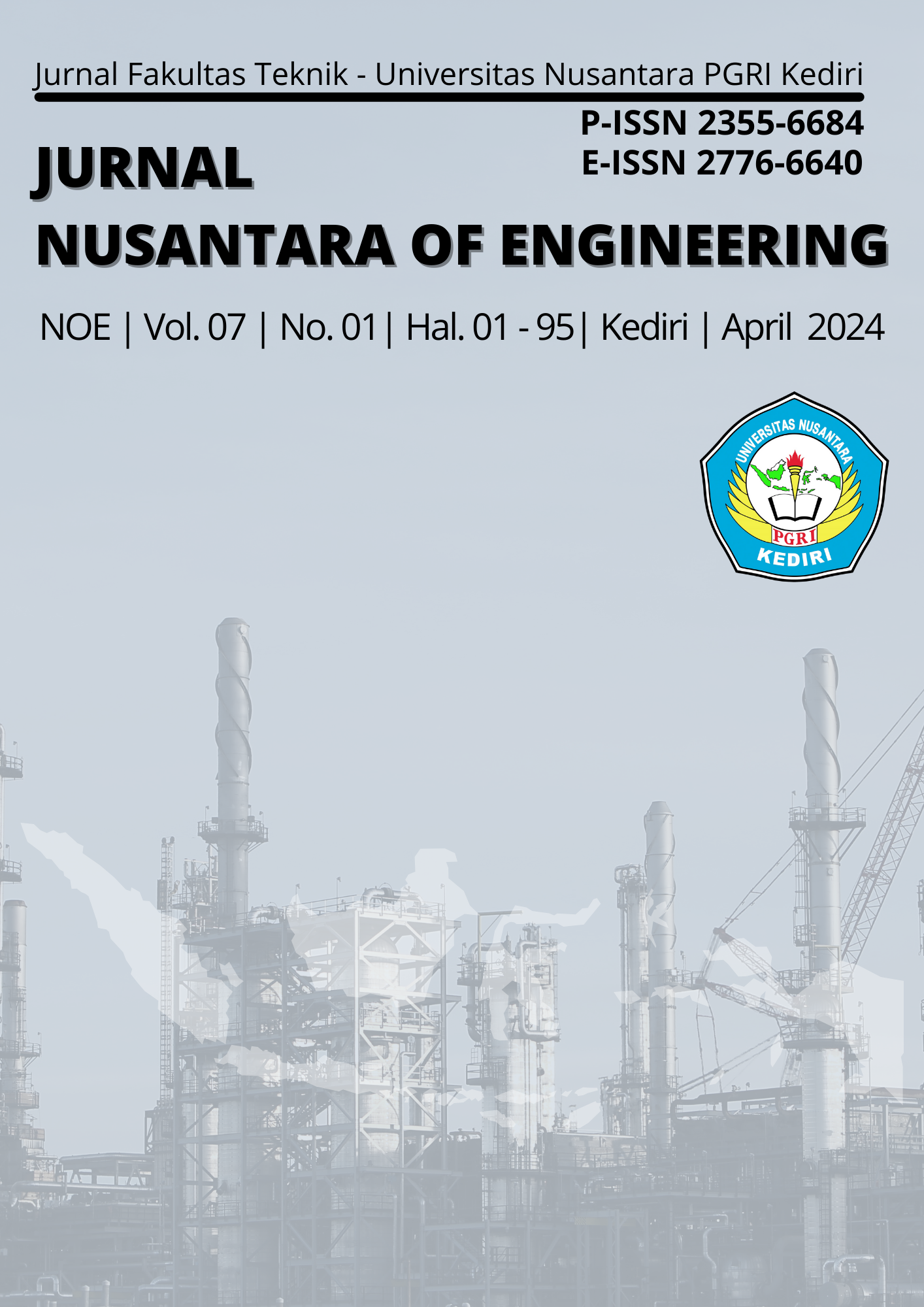WEB SYSTEM DESIGN FOR STUDENT MISBEHAVIOR AT SMAN 1 REJOTANGAN USING NAIVE BAYES METHOD
DOI:
https://doi.org/10.29407/noe.v7i01.22021Keywords:
Naive Bayes, Student Misbehavior, Decision Support System, Web Based, SchoolAbstract
This research addresses student misconduct at SMAN 1 Rejotangan through the implementation of the Naïve Bayes Method in a web-based decision support system. The evaluation demonstrates a high accuracy level in classifying student misconduct. Functional tests confirm the successful management of attendance data and student violations, with the system providing accurate information and receiving positive feedback from users. In the context of Handling IDs, the Naïve Bayes method categorizes students into mild and moderate violations, with Handling 1 to Handling 5 encompassing these categories. Handling 6 and Handling 7 did not appear in the classification results for the second semester of 2023.The conclusion indicates that the implementation of the Naïve Bayes Method has successfully made a positive contribution by providing accurate information and supporting decision-making for the school authorities. Research recommendations include optimizing the Naïve Bayes algorithm, developing system features, actively involving relevant stakeholders, user training, and periodic system maintenance. These steps are expected to enhance the quality and effectiveness of the system in addressing the dynamics of student misconduct in the school environment.
Downloads
References
Ariani, F., Amir, N. A., Rizal, K., Sitasi, C., & Sunge, A. S. (2018). Klasifikasi Penetapan Status Karyawan Dengan Menggunakan Metode Naïve Bayes. ILKOM Jurnal Komputer Dan Informatika, 20(2).
Cahyono, R. D., & Subiyantoro, H. (2022). Pengaruh Program Double Track dan Efikasi Diri Terhadap Minat Berwirausaha Siswa SMAN 1 Rejotangan. Jurnal Economina, 1(2), 109-119.
Dalyono, Psikologi Pendidikan. Jakarta: Rieneka Cipta, 2010.
Islamadina, R., Mustafa, S., & Muklis, S. (2021). Sistem Informasi Monitoring Kehadiran Siswa dalam Pengawasan Orang Tua pada Sekolah Menengah Kejuruan (SMK) Negeri 4 Banda Aceh. Jurnal Nasional Komputasi dan Teknologi Informasi, 4(3), 227-238.
Morrison, R. A., Martinez, J. I., Hilton, E. C., & Li, J. J. (2019). The influence of parents and schools on developmental trajectories of antisocial behaviors in Caucasian and African American youths. Development and psychopathology, 31(4), 1575-1587.
Putri, E. E., & Ahmadi, A. (2014). Perancangan sistem informasi poin pelanggaran dan prestasi siswa berbasis sms gateway pada sekolah menengah kejuruan negeri 3 pacitan. Indonesian Journal of Networking and Security (IJNS), 4(1).
Riyanto, I., & Novita, I. (2019). Perancangan Sistem Informasi Poin Pelanggaran berbasis Web pada SMP Negeri 87 Jakarta. IDEALIS: InDonEsiA JournaL Information System, 2(6), 32-37.
Sabirin, A. R., Raufun, L., Hamid, H., & Amrol, A. (2019). Sistem Informasi Kehadiran Dan Pelanggaran Siswa Smpn 2 Siompu Barat Berbasis Web. Jurnal Informatika, 8(2), 43-50.
Sabirin, Abdul & Hamid, Helson & Amrol, Amrol. (2020). Sistem Informasi Kehadiran Dan Pelanggaran Siswa Smpn 2 Siompu Barat Berbasis Web. JURNAL INFORMATIKA. 8. 43. 10.55340/jiu.v8i2.276.
Sihombing, E. D. C., & Wahab, S. R. (2021). Penerapan Framework Model-View-Controller (Mvc) Pada Sistem Informasi Manajemen Data Jemaat Berbasis Web (Studi Kasus Gki Maranatha Kampung Harapan). JISAMAR (Journal of Information System, Applied, Management, Accounting and Research), 5(1), 152-160.
Widyastono, H. (2021). Pemanfaatan Teknologi Informasi dan Komunikasi pada Sekolah Menengah Pertama Negeri Akreditasi A di Provinsi Jawa Timur. Kwangsan: Jurnal Teknologi Pendidikan, 5(1), 21-38.
Downloads
Published
Issue
Section
License
Authors who publish with this journal agree to the following terms:
- Copyright on any article is retained by the author(s).
- The author grants the journal, right of first publication with the work simultaneously licensed under a Creative Commons Attribution License that allows others to share the work with an acknowledgment of the work’s authorship and initial publication in this journal.
- Authors are able to enter into separate, additional contractual arrangements for the non-exclusive distribution of the journal’s published version of the work (e.g., post it to an institutional repository or publish it in a book), with an acknowledgment of its initial publication in this journal.
- Authors are permitted and encouraged to post their work online (e.g., in institutional repositories or on their website) prior to and during the submission process, as it can lead to productive exchanges, as well as earlier and greater citation of published work.
- The article and any associated published material is distributed under the Creative Commons Attribution-ShareAlike 4.0 International License








